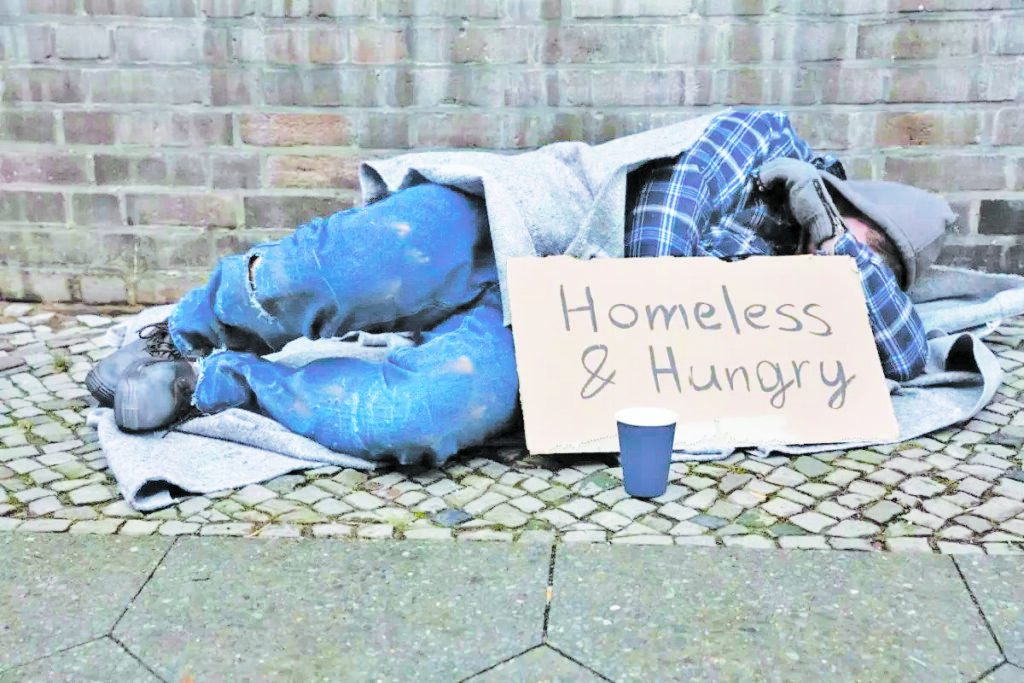by S. Rotan Hale

It’s been often said that “it’s a people world,” undoubtedly it’s one of the simplest, oldest, and most basic sayings, yet packed into it is a menagerie of underlying issues of the greatest scale regarding life as we know it.
Two of the most pressing issues among the many facing modern society are homelessness and its cousin mental illness. Staggering statistics show millions of people are struggling–affected by these two connected issues in numbers that unfortunately continue to climb like never before.
For the last few years, the pandemic has interrupted homelessness data collection however various sources report a decrease in the number of people currently experiencing homelessness.
Statistics from a Point-in-Time Report in 2021, Blue Ridge Interagency Council on Homelessness estimate that 250 people were homeless in the Roanoke Valley alone during the focused period. Reasons people wind up homeless vary greatly and run the gamut from actions resulting from drug and alcohol abuse to financial troubles and the list goes on.
However, many of those homeless, in some cases, are the result of some level of mental illness often driven by the lack of adjustment to the consistent, overwhelming abundance of pressures (economic, etc.) that modern life certainly delivers.
Additional resources to curb the ongoing crisis offered by the city involve programs such as the Homeless Assistance Team (HAT) that provide outreach services and case management for anyone needing permanent housing. Also, the Rescue Mission has eased restrictions for those seeking shelter as well.
Working with then Vice-Mayor Trish White-Boyd, HAT representative Matt Crookshank met with civic-minded local business owner Yoedie “Cleveland” Swain and others to discuss the issue of homelessness and what to do about it locally.
“The city was in gear and had the funding to launch efforts to address a host of issues since the pandemic but it was Cleveland that emphasized the issue of homelessness,” said White Boyd.
In the summer of 2020, Roanoke City Council formed the Star City Strong Recovery and Resiliency Advisory Panel consisting of 36 council-appointed community-conscious citizens with the expressed purpose to make recommendations to City Council regarding the use of the $64.5 million Star City Strong Recovery Fund. Although the fund was basically set up to offset certain challenges brought on by the COVID-19 pandemic, portions of the fund were allocated to homelessness and mental illness in the valley.
Due to an ordinance imposed on January 1, 2022, by city officials, certain areas where people camp on sidewalks downtown and various locations about the city, have been eradicated for the most part. Additionally, city crews routinely clean up a sizable encampment in a wooded area just off Hershberger Road in the Town Square area near the airport. The area is one of several around the city–some hidden from plain view–where homeless individuals set up camp.
One day while in his salon (Divas House of Hair) Swain came face-to-face with the issues when a lady came in wanting her hair done. Because she was carrying luggage he first thought she had come from the airport. He thought something was “not quite right with her” and to his amazement, found out later that she was actually homeless.
Due to his allegiance to the cause, Swain is on a mission to be part of the solution by donating the proceeds from an upcoming affair (April,1) celebrating both his 50th birthday and 25 years in business at his hair salon in northwest, New Horizons Healthcare.
“We see mental illness every day in so many aspects of our lives. My mission involves a focus on mental health which ties in with homelessness,” said Swain. “I chose New Horizons because it was birthed out of my church (Loudon Avenue Christian Church), because of the behavioral health services offered and the facility’s focus on our community.”
Swain’s efforts to give back to the community prompted him to urge other individuals, businesses, and organizations to get involved and join the efforts in the fight against homelessness and mental illness.




